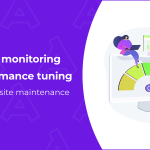Why does healing sometimes feel harder than the actual illness? You finally get through the surgery or treatment, expecting relief—but instead you’re tired, sore, and confused about what’s normal. Recovery doesn’t always look like the smiling brochure your doctor handed you. It’s not just about resting; it’s about managing pain, emotions, and the slow return to feeling like yourself again.
In today’s fast-paced world, slowing down for the purpose of healing feels unnatural. We’re expected to bounce back quickly, answer emails, help with homework, and be functional before the swelling even goes down. There’s a cultural obsession with pushing through. But real healing isn’t about performance—it’s about paying attention to your body’s signals and meeting them with what they actually need.
That could mean fewer steps on your fitness tracker and more time under a blanket. It could mean saying no to plans, yes to medications, and learning that discomfort doesn’t always mean something’s wrong—but ignoring it can lead to bigger problems.
In this blog, we will share what your body really needs during recovery—physically, mentally, and emotionally—so you can move through the process with more ease and fewer surprises.
Start With the Source of Discomfort
One of the hardest parts of recovery is knowing what’s causing the pain. Sometimes it’s the original issue. Other times, it’s the tools used to fix it. A good example? The dreaded stent for kidney stones. If you’ve had one, you know. The pain doesn’t always stop when the stone is gone. That tiny tube—meant to keep things flowing—can feel like a new problem all on its own.
Burning, spasms, and a constant urge to go to the bathroom are common. Your bladder doesn’t know how to handle it. Your back aches. And yet, it’s doing its job. The stent helps your kidney drain and protects it from more damage. But that doesn’t mean you’re stuck suffering.
Managing this kind of discomfort requires more than just patience. It takes the right tools, the right advice, and sometimes, the right team. Clinics like Pazona MD understand this better than most. Their approach focuses on making sure the treatment doesn’t become worse than the problem. With specialists who listen—and actually believe you when you say it hurts—they offer solutions that work. From over-the-counter relief to personalized care plans, they help people get through the rough part of healing with fewer bumps along the way.
Rest Isn’t a Weakness
It’s easy to think rest equals laziness, especially when productivity is praised in every corner of life. But recovery demands real rest—not just sitting still while scrolling through your phone. Your body repairs itself when you sleep. It resets during those quiet moments. Trying to rush that process only delays it.
Some people try to “walk it off” or “get back to normal” before they’re ready. But healing doesn’t come with a timer. It comes with rhythms. And if you ignore them, your body finds ways to slow you down—through pain, fatigue, or setbacks.
Give yourself permission to stop. Let the dishes wait. Let the texts pile up. Listen to your body instead of the noise around you. That’s not weakness. That’s wisdom.
Food Is Medicine (But So Is Comfort)
Nutrition plays a major role in healing, but it doesn’t have to look like a perfect meal plan. Think hydration, protein, and enough calories to fuel repair. Bone broth, soft fruits, rice, yogurt, and smoothies are all great recovery staples—easy to digest and easy to prep.
That said, don’t shame yourself for wanting a piece of chocolate or a slice of toast at midnight. Comfort food has its place, too. When your body is sore and your mind is tired, something warm and familiar can offer more than calories—it offers grounding.
The goal is to eat with kindness. Fuel your body without turning it into a checklist. Healing isn’t the time for crash diets or cutting corners. It’s the time for steady, honest care.
Movement Helps—But Only the Right Kind
Staying completely still isn’t always the answer. Gentle movement can boost circulation, prevent stiffness, and help your mood. But the key word is gentle. Not everything counts as a recovery win.
Short walks. Light stretching. Breathing exercises. That’s enough. If your body hurts more after the activity, it’s probably too much. Let your body guide you, not your ego. There’s no gold star for overexertion, only setbacks.
And don’t compare your pace to someone else’s. Every recovery is different. What helps is movement that restores, not movement that pushes.
Pain Relief Isn’t One-Size-Fits-All
Not all pain is created equal—and neither are pain meds. What works for one person might not work for another. And some types of pain, like nerve pain, don’t respond well to basic over-the-counter options.
This is where your care team matters. They should help you figure out what kind of pain you’re having and match it with the right strategy. That could be heat packs, muscle relaxers, dietary changes, or guided breathing. And yes, sometimes it’s medication. But the goal is comfort, not masking symptoms.
Pain relief should be smart, not one-note. If you feel dismissed or stuck, keep asking questions—or find someone who will.
Healing Takes Mental Energy, Too
Recovery isn’t just physical. It’s emotional. You might feel impatient, frustrated, or anxious that you’re not bouncing back the way you hoped. That’s normal. Surgery, illness, or even just a tough medical procedure can leave you feeling vulnerable in ways you didn’t expect.
Make space for that. Talk about it. Journal. Listen to music. Watch something comforting. Or say nothing at all. Give your mind the same grace you give your body.
This is also when small moments matter. A five-minute conversation. A laugh at a silly show. A window open with fresh air coming in. These things feel minor, but they help your nervous system feel safe again—and that helps your body heal faster.
Listen, Adjust, Repeat
There’s no straight line to feeling better. Some days will feel like progress. Others will feel like setbacks. That doesn’t mean you’re failing—it means you’re human.
The best way to recover is to stay curious. Listen to your body. Adjust your routines. Don’t expect perfect, just better. Little by little.
Healing isn’t always pretty, but it’s always worth it. And when you give your body what it actually needs—not what the world expects—you’ll find your way through it a whole lot easier.
Lynn Martelli is an editor at Readability. She received her MFA in Creative Writing from Antioch University and has worked as an editor for over 10 years. Lynn has edited a wide variety of books, including fiction, non-fiction, memoirs, and more. In her free time, Lynn enjoys reading, writing, and spending time with her family and friends.















